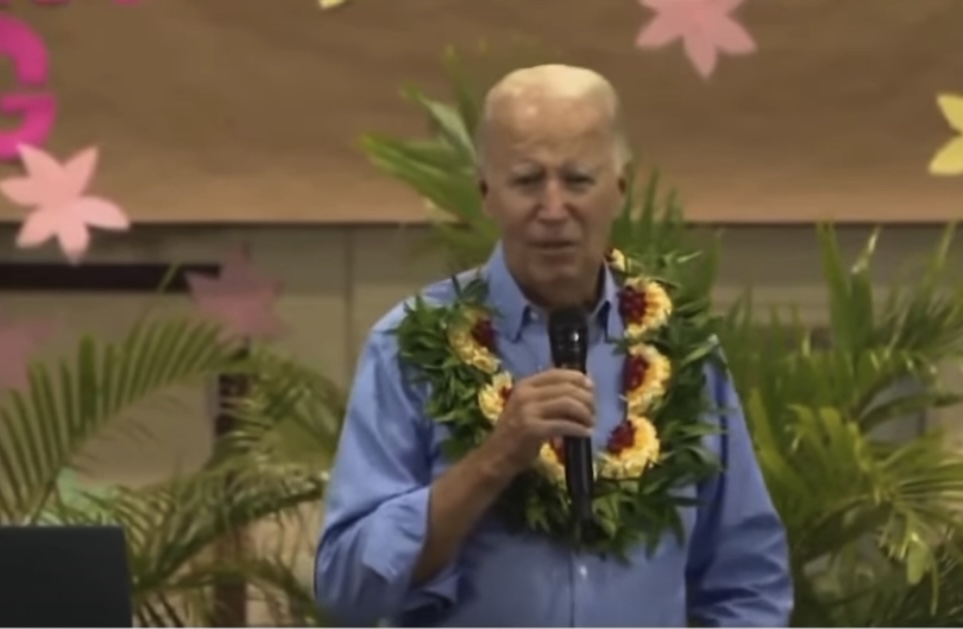In the wake of a devastating natural disaster in Maui, President Joe Biden’s visit to the island came almost two weeks after the fact, leaving many residents feeling that it was already too little, too late. However, what could have been an opportunity for empathy and support for the affected community turned into a moment where Biden’s actions made it all about himself.
During his visit, the President emerged from an aerial tour of the disaster’s aftermath with an unsettling grin. He then proceeded to botch the names of Hawaii’s delegation, stumbling through his prepared remarks before being gently guided away from the podium.
Perhaps the most bewildering moment came when, addressing a gathering of victims and survivors, President Biden told a completely fabricated story about losing his own home to a fire. In his attempt to connect with those who had suffered loss, he claimed, “I almost lost my wife, my ’67 Corvette, and my cat.” However, a fact-check reveals that this story never occurred. According to a 2004 AP report, the incident in question was described as a “small fire that was contained to the kitchen.”
Regrettably, this isn’t the first time President Biden has leveraged an untrue narrative to try to empathize with disaster victims. It raises concerns about the authenticity of his expressions of empathy and the need for more transparency in his communication.
What compounded the frustration of many Maui residents was the fact that, mere hours after landing on the island, President Biden was heading back to Lake Tahoe to resume his second weeklong vacation in the past month. This left a bitter taste in the mouths of those who felt that their plight had been largely ignored.
The signs lining the road accusing President Biden of being “too late” were not just expressions of anger but reflections of a community’s sense of abandonment during a trying time.
In times of crisis, leadership is not just about policy and actions but also about genuine connection and empathy. President Biden’s Maui visit missed the opportunity to provide the kind of comfort and support that disaster-stricken communities need most. It serves as a reminder of the importance of timely responses and authentic gestures of solidarity from our leaders in moments of crisis.












































































































































































































































































































































































